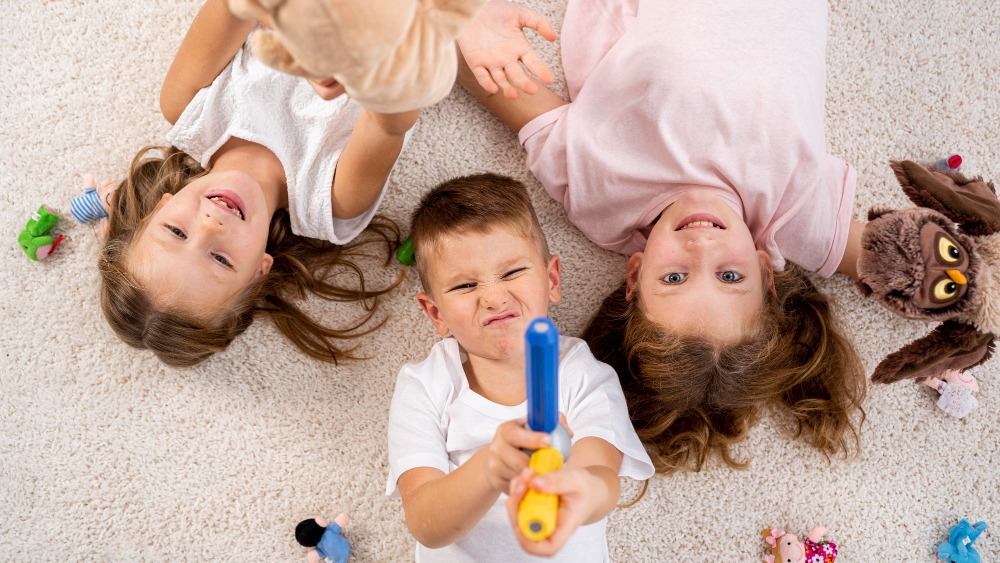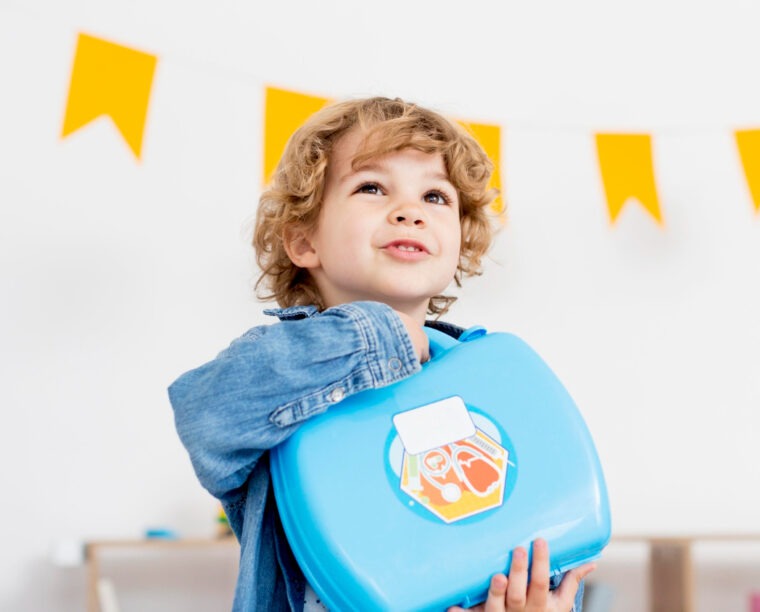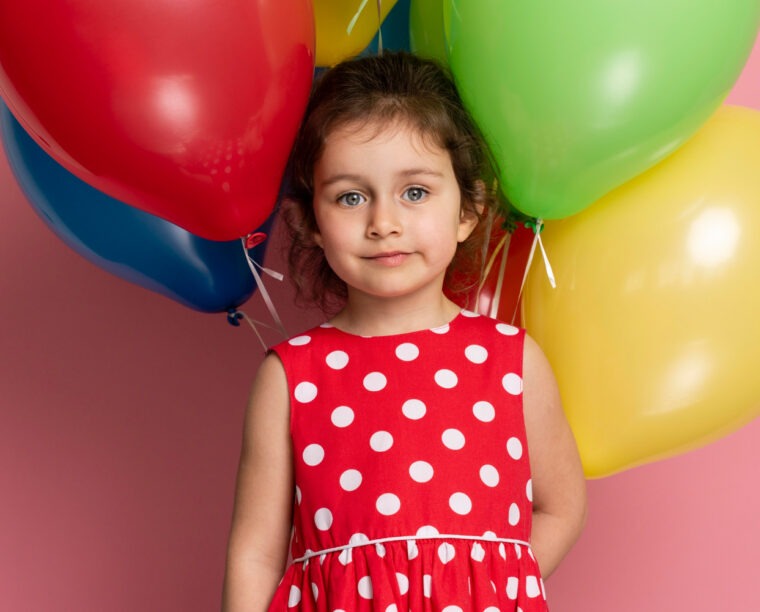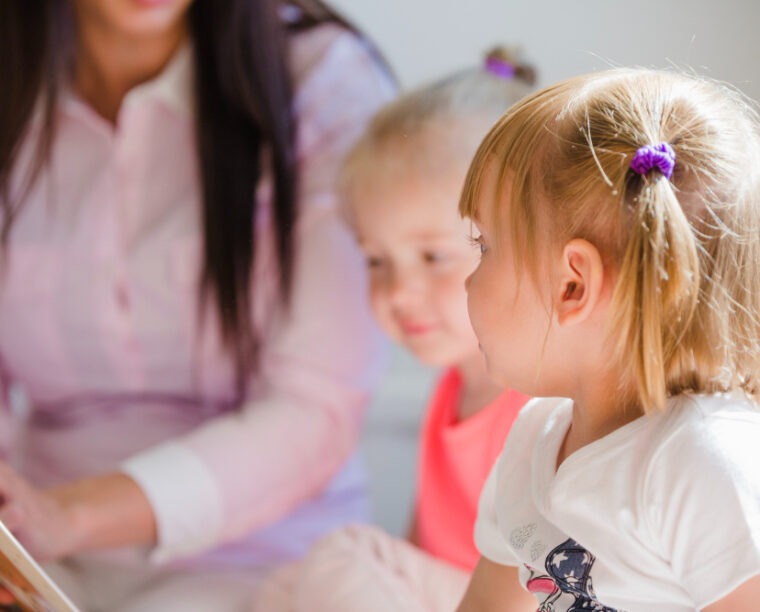
The first steps into kindergarten are often filled with mixed emotions – excitement, curiosity, and a touch of anxiety, both for the child and for the parents. It is one of the first times a little one leaves the safety of home and enters a new world full of unfamiliar people, sounds, and routines. A child‘s adaptation to kindergarten is not only about getting used to a new routine – it is also an important stage of emotional growth that requires time, serenity, and patience.
The beginning of adaptation: an important step for the whole family
During the first few weeks, parents often experience a wide range of feelings: from joy at seeing their child grow up to concern about how they will cope in a new environment. It is completely normal for a child’s adaptation to bring challenges: they may seem down-hearted, more sensitive, or more withdrawn – but this is a natural part of learning to be apart from parents, meeting new people, and adjusting to a different daily rhythm.
At this stage, close cooperation between parents and teachers is particularly important. At Saulės Gojus kindergarten, teachers do their best to ensure that every child feels safe and accepted. They understand that adaptation does not happen overnight – it is a gradual journey shared with the adults who support the child. Teachers never downplay a child’s emotions or struggles; instead, they walk beside them, showing through care and consistency that the world can be trusted, even when it stretches beyond the comfort of home.
When adaptation becomes a challenge
Usually, the adaptation process goes quite smoothly, but for some children it takes more time and patience. A difficult adaptation to kindergarten is not unusual. For some, the new environment can be a major source of stress: they may become more irritable, fall ill more frequently, or even temporarily return to earlier habits such as asking for a bottle or refusing to dress themselves.
Parents often wonder what to do if their child cries at kindergarten or refuses to eat there. Such signs rarely mean that something is wrong: more often, they show that the child is still learning to trust their new surroundings. The little one simply longs to be close to their parents, and activities such as eating, playing, or socialising with other children require a sense of emotional safety that is still developing.
The most important thing is to stay patient and trusting. A slow adaptation does not mean your child will not settle in – it simply means that every child needs their own time to feel at home in a new place.
How to help your child adapt to kindergarten
To make your child’s transition to kindergarten easier, it helps to begin preparing well before the first day. Talk to your little one about the new friends, games, and discoveries that await them. Keep the conversation calm and positive – children are highly attuned to their parents’ moods and emotions.
In the first few days, it’s best to keep the time spent at kindergarten shorter, allowing your child to gradually get used to the new environment. At Saulės Gojus kindergarten, this process is called gentle adaptation: teachers focus on building emotional connections, carefully observe each child’s mood and behaviour, and ensure that they feel safe and supported.
It also helps when parents maintain a consistent daily routine at home: a predictable structure gives children a sense of calm and emotional security. You can make the transition easier by letting your child take something familiar from home, such as a favourite toy or small blanket. These little comforts can make a big difference in helping them feel safe and settled.
A team of teachers and parents
At Saulės Gojus kindergarten, special emphasis is placed on close cooperation between teachers and families. During the adaptation period, teachers communicate with parents daily, sharing their observations and discussing what helps the child feel comfortable and what may cause anxiety. This mutual connection builds trust: parents feel more at ease, and the child senses that their two worlds – home and kindergarten – are linked and work in harmony.
Teachers not only observe children but also help them express their emotions. If a child cries at kindergarten, they are never left alone – teachers talk to them, offer a hug, and provide both physical and emotional reassurance. If a child refuses to eat, they are not pressured – instead, they are gently encouraged to try, in a calm and supportive atmosphere. Everyone understands that forcing a child only increases stress and diminishes appetite.
Every child develops at their own pace
It is important for both parents and teachers to remember that successful adaptation cannot be measured in days. Some children settle in within a few days, while others may need several weeks or even months. There is no need to rush: a child adapts when they feel loved, respected, and supported.
Learning to be without parents is a key step in emotional development. When a child realises that their parents will always come back, and that teachers are adults they can trust, kindergarten gradually becomes not a strange or intimidating place, but a second home.
Trust – the key to a successful start
Adapting to kindergarten is a process that calls for calmness, patience, and trust. At times, it may feel as though the difficult days will never end – but then comes the morning when your child smiles, waves goodbye, and runs happily towards their friends and teachers.
At Saulės Gojus kindergarten and school, we are convinced that every child adjusts more easily when they feel safe and understood. Here, adaptation is not just about settling into a new routine – it is a journey towards independence, self-confidence, and trust in the world. And the most important thing loving parents can do along the way is to be there for their child and believe in them.


